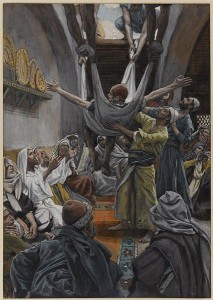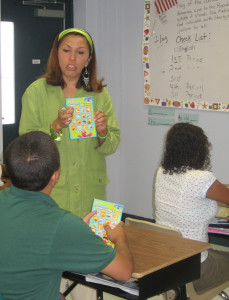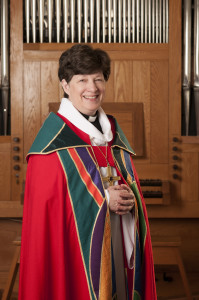Warm-up Question
- What are some of the most important symbols of the Christian faith to you and what do they communicate? (For example, what meanings does a symbol like the cross convey?)
- Can you think of any other important symbols in your daily life?
Symbols Matter
On September 18, 2014, the world watched as an historic vote unfolded in Scotland. By a margin of 55% to 45%, with nearly 85% of registered voters casting a ballot, the Scottish people voted “No” to independence. Their decision preserved a union between England and Scotland that has endured for more than 300 years.

Yet there was more at stake in this referendum than just the “United” in United Kingdom. In the weeks leading up to the vote, as it became apparent that a vote for independence just might succeed, there was a great deal of anxiety on the part of many different parties. Not only were there impassioned pleas from leading politicians on both sides of the issue, leaders from all over the world weighed in, as did many international celebrities and artists. Questions were also raised concerning the impact of a “Yes” vote. For example, what would Scottish independence mean for the European Union or for NATO? How would a positive vote impact other countries like Spain who are dealing with their own independence movements? Like a rock being thrown into a calm pond, the ripples of this event radiated far beyond the borders of Scotland itself.
In many ways they still do. Though the vote is over, the issues it has raised, the emotions and passions that have been stirred, and the political debates that have been initiated will continue to resonate for a long time to come. At the heart of things is the question what sort of kingdom will this United Kingdom be?
Discussion Questions
- Flags are potent national symbols. The Union flag of the United Kingdom, for example, is composed of the St. George’s Cross of England, St. Andrew’s Cross of Scotland, and St. Patrick’s Cross of Ireland, symbolizing in its very design both a union and unity. For those of us in the United States, what do the different elements of our flag mean or symbolize?
- Symbols can often impact us at deep, emotional levels. Have you ever experienced a time when the sight or use of the flag stirred you emotionally?
- What issues have threatened to destroy our own unity as a nation in the past? What issues divide people today? How are these issues the same? How are they different?
Lectionary 27
(Text links are to Oremus Bible Browser. Oremus Bible Browser is not affiliated with or supported by the Evangelical Lutheran Church in America. You can find the calendar of readings for Year C at Lectionary Readings.)
For lectionary humor and insight, check the weekly comic Agnus Day.
Gospel Reflection
Jesus’ “Parable of the Wicked Tenants” follows his triumphal entry into Jerusalem, an event we celebrate on Palm/Passion Sunday as the beginning of Holy Week. The donkey and the route that Jesus takes in this procession are not accidental. Jesus makes use of potent national symbols to make a statement about himself, as the gospel writer makes clear in Matthew 21:1-11. Jesus then attacks the powers that be through “cleansing the Temple.” Among other things, his actions lead to the setting of this story, a series of confrontations with the Jewish religious leaders and authorities. They challenge Jesus’ legitimacy and authority to do the things he is doing. He calls into question, not only their legitimacy as leaders of the true Israel, but also their loyalties and motives concerning God and God’s purposes and desires for the people.
One of the well-known symbols that Jesus uses in these confrontations is that of a vineyard, long an image for Israel itself. The prophet Isaiah’s “Song of the Unfruitful Vineyard” in today’s first lesson (Isaiah 5:1-7) is but one example of this symbol’s use in Scripture, and well worth reading. The point of Isaiah’s message is Israel’s unfaithfulness. What more could God have done? God prepared in the very best ways, planting and cultivating a people through whom a harvest of faithfulness, justice, and righteousness was expected. What God received was something else altogether.
Jesus’ parable follows a very similar plot. Here a landowner prepares a vineyard and leases the vineyard to tenant farmers, expecting to receive his due – a share of the harvest. They in turn are not faithful to their responsibilities, but instead treat the landowner’s representatives (and therefore the landowner, himself) with great contempt and violence. Now given that Jesus’ opponents were also experts in the Scriptures, it is easy to imagine that they made the connections right off the bat. The landowner is God, of course, and the tenants are the leadership of Israel. The long-string of servants which the tenants mistreat are the prophets who were beaten, stoned, even killed for declaring the word of the Lord and pointing Israel back to her true purpose and vocation. But who then is the landowner’s son in the story? That is the question.
Lest we think the answer to this question is obvious – Jesus, of course — remember that the whole issue behind these confrontations and the increasing animosity towards Jesus centers around his true identity and by what authority and power he is doing the things he is doing. In answer, Jesus points them to two places in the Scriptures, Psalm 118:22 (Matt. 21:42) and Daniel 2:44-45 (Matt. 21:44). In the first, Jesus makes use of a play on words in the Hebrew language (the original language of the Hebrew Bible, what we commonly call the Old Testament) between the word for “son,” ben, and the word for “stone,” eben. Though they are rejecting Jesus and his message, and indeed will ultimately reject him through the cross, God has something else in mind and will vindicate Jesus in the end. The second passage from Daniel serves to underscore Jesus’ point. Here again the image of a stone is used, but this time from an important passage in terms of the hope of a time – a messianic age – in which God would defeat all the opposing kingdoms and restore Israel. God is doing that, Jesus claims, but not in the way that many, including his opponents, were expecting.
In the end, the chief priests and the Pharisees who have come to confront Jesus get the point. They are the tenants in the story and Jesus is the son. Enraged by such a challenge to their legitimacy and authority, they want to arrest Jesus, and eventually will. For now they can only stand by helpless because of the crowds around them.
It is easy to read this passage from the perspective of being on the right side of things. After all, we know who Jesus is. We believe in him, unlike those stubborn, hard-hearted, and “bad” people who put him on the cross. Sadly, the history of the church has been to do just that, to read such passages and find in them a reason to hate and persecute our Jewish brothers and sisters as “Christ killers.” Yet if Jesus is indeed the Messiah (and I believe that he is), and if we are “joint heirs” with him of God’s kingdom as Paul says (Romans 8:15-17), then are we not also accountable to God for producing the “fruits” God expects to see? Perhaps then the issue this passage calls us to think about is this, if indeed followers of Jesus have been given the kingdom as Matthew declares (Matt. 21:43), then what sort of “kingdom” is God calling us to be?
Discussion Questions
- When we pray in the Lord’s Prayer, “Your kingdom come, Your will be done on earth as it is in heaven…” what do you think we are asking? What does God’s kingdom look like to you? What pictures come to mind?
- If you talked above about the issues that divide people today, what do you think would be a Christian response(s) to some of the things you discussed? Or if there are other issues, anxieties, or needs particular to your group or community, talk about how you might respond in ways which bring God’s love and light to bear. Can you follow up your discussion with action?
- In your opinion, is it important for Christians – particularly people your age – to express their faith through outward acts of service? Why or why not?
- If your congregation participated in the ELCA Day of Service, think about how your group might either continue or extend that service in your community or the wider world.
Activity Suggestions
- Tour your worship space together. What symbols do you notice? If your space has stained glass windows depicted biblical people or stories, for instance, why do you think those themes were chosen? Does the shape of your worship space or the way that the altar is arranged communicate something? Many older sanctuaries are built in the shape of a cross. Altars are often placed in the round. What do these things symbolize?
- Think about your worship service. Make a list of all the symbolic actions or gestures you notice? Remember that both worship leaders and the congregation engage in symbolic actions. What do they “say?”
- Together make a list of the sorts of things God wants/expects to see from God’s “kingdom people?” Some passages you might investigate include: Isaiah 58:1-14; Micah 6:6-8; the Sermon on the Mount (Matthew chapters 5-7). What other verses, stories, or parables come to mind?
Closing Prayer
Gracious and loving God, in the waters of baptism you name us and claim us and make us your very own. Thank you for the gift of faith, and for your relentless love that will not let us go no matter what. Empower us by your Spirit to be the kingdom-people you call us to be, and lead us to be living signs of your grace in the lives of those around us. In Jesus’ name we pray. Amen.








 dynamic ELCA World Hunger team in Chicago! I will be serving as a Program Assistant for the next year through a placement with the Lutheran Volunteer Corps (LVC). I am honored to be the first LVC member to work with ELCA World Hunger and am excited about all the year has in store. I will be working with Education and Constituent Engagement.
dynamic ELCA World Hunger team in Chicago! I will be serving as a Program Assistant for the next year through a placement with the Lutheran Volunteer Corps (LVC). I am honored to be the first LVC member to work with ELCA World Hunger and am excited about all the year has in store. I will be working with Education and Constituent Engagement. Many different factors determine the punishments players receive. Former Texas coach Mack Brown describes it this way: “You’ve got to be consistently fair with your rules, understanding that there are so many inconsistent things that are thrown at you.” Brown once had three of his players get DUIs during one off-season. He disciplined them differently because two of the players had been causing trouble for a while, but the third had never broken a rule before.
Many different factors determine the punishments players receive. Former Texas coach Mack Brown describes it this way: “You’ve got to be consistently fair with your rules, understanding that there are so many inconsistent things that are thrown at you.” Brown once had three of his players get DUIs during one off-season. He disciplined them differently because two of the players had been causing trouble for a while, but the third had never broken a rule before.